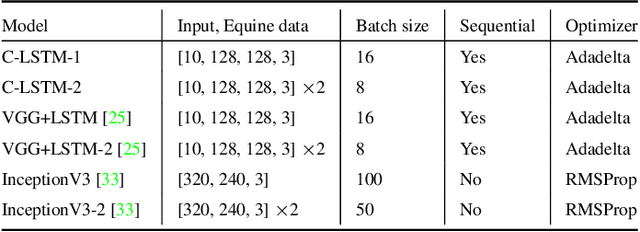Karina Bech Gleerup
Dynamics are Important for the Recognition of Equine Pain in Video
Jan 07, 2019



Abstract:A prerequisite to successfully alleviate pain in animals is to recognize it, which is a great challenge in non-verbal species. Furthermore, prey animals such as horses tend to hide their pain. In this study, we propose a deep recurrent two-stream architecture for the task of distinguishing pain from non-pain in videos of horses. Different models are evaluated on a unique dataset showing horses under controlled trials with moderate pain induction, which has been presented in earlier work. Sequential models are experimentally compared to single-frame models, showing the importance of the temporal dimension of the data, and are benchmarked against a veterinary expert classification of the data. We additionally perform baseline comparisons with generalized versions of state-of-the-art human pain recognition methods. While equine pain detection in machine learning is a novel field, our results surpass veterinary expert performance and outperform pain detection results reported for other larger non-human species.
 Add to Chrome
Add to Chrome Add to Firefox
Add to Firefox Add to Edge
Add to Edge